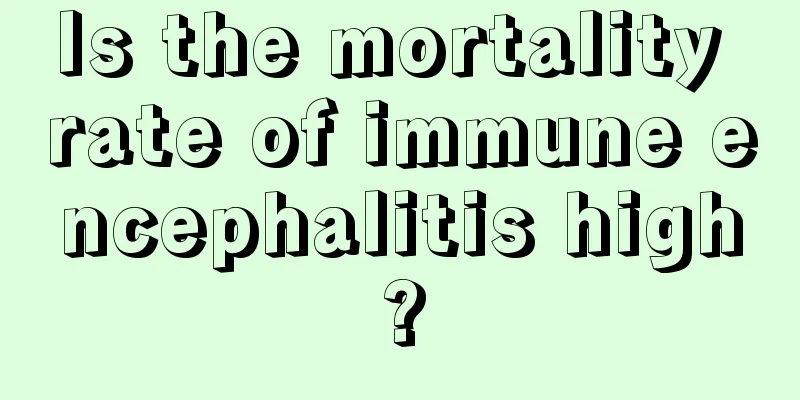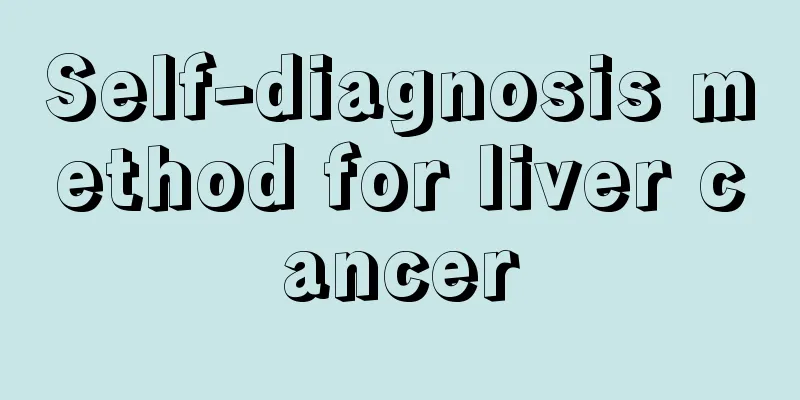Is the mortality rate of immune encephalitis high?

|
Immune encephalitis is a disease of the human immune system's neural antigen response, which can easily lead to symptoms of epilepsy, brain damage, and mental disorders. The mortality rate of immune encephalitis is also very high, because immune encephalitis can easily cause nervous system disorders, leading to death or viral infections. Immune encephalitis Autoimmune encephalitis refers to a broad group of diseases caused by the immune system's response to central nervous system antigens. The main clinical manifestations are epileptic seizures, cognitive impairment and mental symptoms. It has been gradually recognized in recent years. Among the autoimmune encephalitis currently known, anti-NMDA receptor encephalitis is the most common, followed by anti-GAD encephalitis, anti-MA2 encephalitis, anti-AMPA receptor antibody encephalitis, and anti-GABAb receptor antibody encephalitis. Typical anti-NMDA receptor encephalitis goes through five stages during the course of the disease, but not all patients have such typical manifestations, or do not progress strictly according to these five stages, and the five stages can overlap with each other. 1. Prodromal stage; 2. Mental disorder stage; 3. Unresponsive hypoventilation stage; 4. Movement disorder and autonomic dysfunction stage; 5. Recovery stage or death; Typical clinical symptoms: Prodromal symptoms: Most patients have fever, headache and non-specific viral infection-like symptoms before the onset of the disease. 1. Mental symptoms: Mental symptoms may be the first symptom, including anxiety, irritability, strange behavior, delusion, paranoia, hallucinations, auditory hallucinations, etc. 2. Seizures: Seizures usually occur within 3 weeks of onset and may take many forms 3. Decreased level of consciousness: decreased level of consciousness and memory loss 4. Movement disorders: Abnormal oral and tongue movements: weird grimaces, forced jaw opening or closing, pouting, biting, lip and tongue injuries; abnormal eye movements: eye opening and closing, strabismus, blepharospasm, eye swaying and oculomotor crisis; athetosis/choreiform movements; rigidity and torsion of the limbs, dystonia and spastic tension 5. Language disorders: reduced speech, mutism, gibberish, mumbling, imitating language, etc. 6. Autonomic dysfunction: arrhythmia, tachycardia, bradycardia, mydriasis, rapid breathing, sweating, blood pressure changes, rash, hypersalivation, urinary incontinence, and few children need to be fitted with a pacemaker. 7. Sleep disorders: insomnia, restless sleep or increased 8. Central hypoventilation: mostly caused by severe autonomic dysfunction, patients often need mechanical ventilation to assist breathing; Anti-NMDA receptor encephalitis may be accompanied by the occurrence of tumors, mainly ovarian teratomas, which are more common in women of childbearing age. Testicular germ cell tumors may also be found in male patients, and other associated tumors include lung cancer, thyroid tumors, breast cancer, colon cancer and neuroblastoma. Therefore, all patients suspected or diagnosed with anti-NMDA receptor encephalitis need to be fully screened for tumors (the probability of concomitant tumors in children is much lower than that in adults). |
<<: The specific effects of cooking peanuts and red dates
>>: What are the effects of dried mussels
Recommend
What's the fastest way to sober up?
In daily life, people will inevitably get togethe...
Can I wear amber to sleep?
Whether you can wear Amber to sleep depends on th...
Do cervical precancerous lesions require chemotherapy? How should cervical precancerous lesions be treated?
Does cervical precancerous lesions require chemot...
Friends should understand the complications of lymphoma
Complications of lymphoma are not uncommon among ...
What's wrong with trace urine protein? 7 things you need to pay attention to
Everyone's urine contains trace amounts of ur...
Five high-risk groups prone to prostate cancer
Prostate cancer is the most common malignant tumo...
What is the reason for sudden spots on the face?
If spots suddenly appear on your face, you need t...
What kind of tea is good for teratoma
Teratoma is a common disease in women. It can occ...
What factors can cause hamartoma
Nowadays, the pressure of life is getting higher ...
How long does it take to detect pregnancy
Many newlyweds hope to have another member in the...
Is the cure rate of lung cancer high? You need to know these common knowledge about lung cancer
Cancer is a malignant disease that can kill peopl...
What are the complications caused by lymphoma
Lymphoma is a malignant tumor originating from th...
Three signs of lung cancer in the neck
Three signs of lung cancer in the neck: Lung canc...
Symptoms of bone hyperplasia in fingers
As the physical functions of middle-aged and elde...
How to treat multiple cavernous hemangiomas?
People often encounter some medical problems, som...









